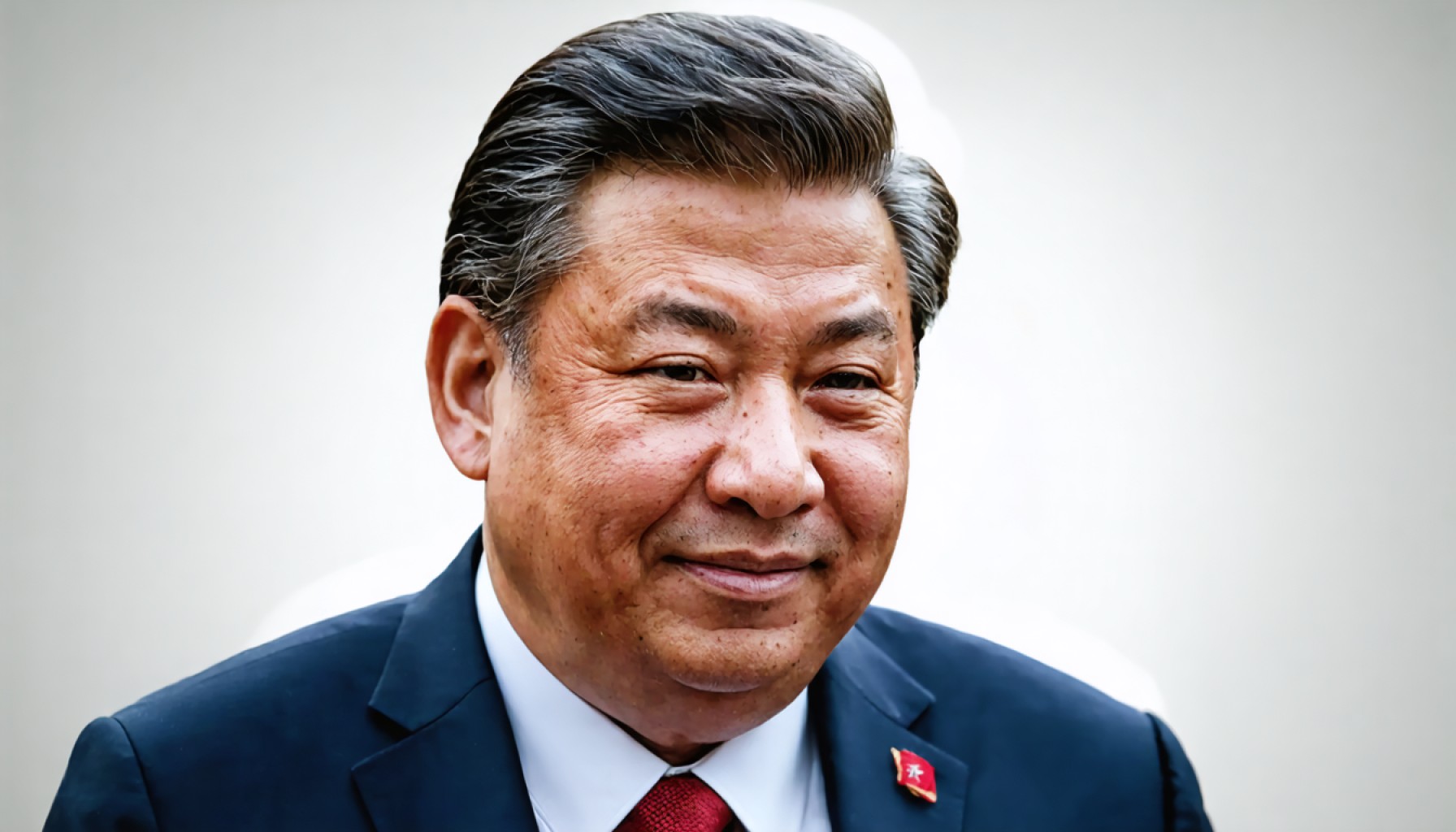- Jiang Chaoliang, a key figure in China’s National People’s Congress, is under investigation for severe misconduct.
- The Central Commission for Discipline Inspection leads the probe, highlighting its ongoing anti-corruption campaign.
- Jiang’s career includes roles as Governor of Jilin Province and Party Secretary of Hubei.
- This situation underscores the Chinese government’s commitment to accountability and clean governance.
- The case emphasizes the importance of integrity for trust in political leadership.
- The developments serve as a reminder of the broader implications for China’s political stability and modernization efforts.
- The investigation offers hope to citizens, reflecting that no official is immune to scrutiny.
The corridors of China’s political world tremble once more as Jiang Chaoliang, a prominent figure in the National People’s Congress, faces an intense scrutiny. His distinguished career, which spans influential roles such as Governor of Jilin Province and Party Secretary of Hubei, now hangs in the balance. The Central Commission for Discipline Inspection, China’s watchdog for integrity and justice, has announced a probe into allegations of severe misconduct against Jiang.
Born amidst the sweeping changes of 1957, Jiang’s life seemed destined for leadership. He rose through the ranks to leave his mark in China’s political tapestry, particularly as a stabilizing force in regional governance. Yet, this latest twist unveils a darker narrative, provoking questions about the costs of such ascension.
The party’s relentless campaign against corruption continues to cast its net deep and wide, reinforcing its message of zero tolerance. As Jiang stands under the spotlight, China’s political elites grapple with a complex challenge. Trust, after all, serves as the spine of governance, and any breach shakes the very foundation upon which authority rests.
For observers, both within China and beyond its borders, this saga is a reminder of the critical importance of accountability. As the nation marches towards modernization, ensuring integrity within its ranks secures the trust needed to forge ahead.
The alarming developments in Jiang’s case signal not just a personal downfall, but a broader reaffirmation of the Chinese government’s commitment to clean governance. For the country’s citizens, this may offer a glimmer of hope—a promise that even the mightiest are not beyond reproach.
The Shocking Downfall of a Chinese Political Giant: What This Means for China’s Future
How-To Steps & Life Hacks
Understanding the intricacies of Chinese political dynamics requires recognizing the importance of the Central Commission for Discipline Inspection (CCDI). This body, tasked with maintaining integrity within China’s ruling class, follows a thorough procedure when investigating misconduct:
1. Receipt of Allegations: The process begins with receiving tips or complaints.
2. Preliminary Investigation: The CCDI conducts initial fact-finding to determine if a full investigation is warranted.
3. Full Investigation: If initial findings suggest significant wrongdoing, a comprehensive investigation is launched.
4. Report and Recommendation: CCDI compiles a report and recommends actions to the Communist Party’s Central Committee.
5. Execution of Disciplinary Actions: Based on findings, appropriate disciplinary actions are taken, which can range from reprimands to expulsion or legal proceedings.
Real-World Use Cases
The probe into Jiang Chaoliang’s conduct exemplifies how rooting out corruption can strengthen political structures. Similar high-profile cases have led to:
– Enhanced Public Trust: Successful corruption crackdowns reassure the public of the government’s commitment to accountability.
– Policy Reforms: High-profile cases often lead to new regulations aimed at preventing future misconduct.
– Increased Transparency: As seen in previous probes, these actions often correlate with increased transparency in government operations.
Market Forecasts & Industry Trends
The anti-corruption drive in China is anticipated to have ripple effects:
– Business Environment: Clamping down on corruption is expected to improve the business climate by fostering fair competition.
– Foreign Investment: As the government demonstrates seriousness in tackling corruption, foreign investors may find the reduced risks appealing.
– Economic Stability: Tackling corruption boosts economic efficiency and stability, crucial for sustained growth.
Reviews & Comparisons
Compared to other nations with corruption issues, China’s approach is unique due to:
– Zero-Tolerance Policy: Unlike some countries that may turn a blind eye, China’s sweeping measures are stringent and unyielding.
– Centralized Investigation Body: The CCDI’s exclusive focus and authority within the party structure are unparalleled globally.
Controversies & Limitations
While China’s anti-corruption campaign garners praise, it is not without criticisms:
– Potential for Political Purging: Critics argue that some investigations might be politically motivated rather than centered on justice.
– Lack of Judicial Independence: The intertwining of party and state affairs can sometimes hinder impartial trials.
– Transparency Concerns: Ironically, despite promoting transparency, detailed information about investigations is not always disclosed.
Pros & Cons Overview
Pros:
– Reinstatement of Trust: Regular accountability fosters citizen confidence in governance.
– Deterrence: Publicized disciplinary actions deter potential misconduct.
Cons:
– Perceived Instability: Continuous purges can momentarily destabilize political entities.
– Fear Among Officials: Overzealous crackdowns might discourage political dissent or innovative policymaking.
Actionable Recommendations
1. Stay Informed: For those interested in Chinese politics, following updates from reputable sources like Reuters can provide crucial insights.
2. Observe Market Reactions: Business professionals can assess how such political changes affect the market, adjusting strategies accordingly.
3. Cultural Understanding: For businesses or diplomatic entities engaging with China, understanding its governance and anti-corruption policies can enhance cooperation and compliance.
This case represents not just a potential personal downfall for Jiang Chaoliang but also an avenue for systemic reflection and rejuvenation within China’s political framework, promising an era of increasing accountability.
